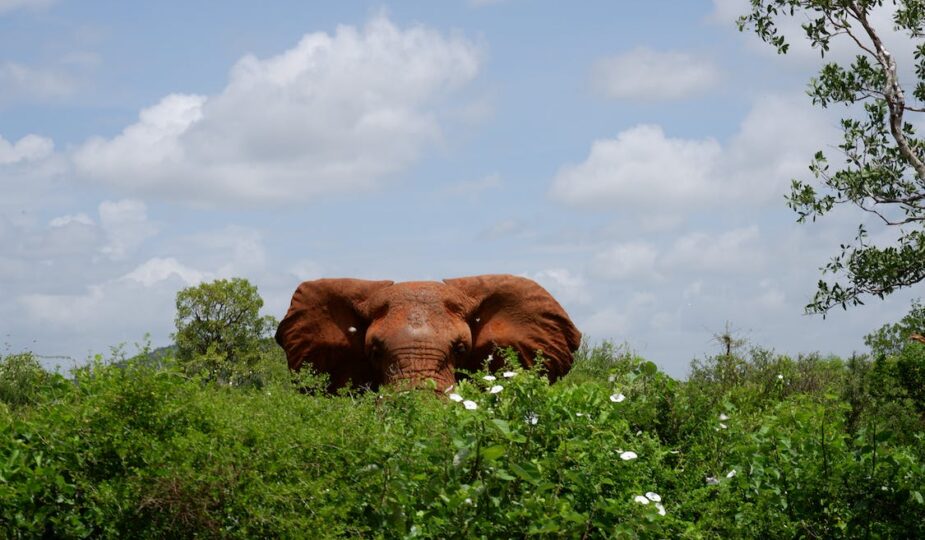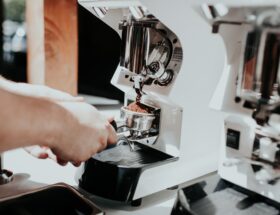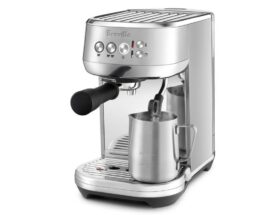
How to Kenyan Coffee: Exploring the Rich & Fruity Flavors
Welcome to the entrancing journey through the vibrant fields of Kenyan coffee. This isn’t just a beverage, it’s a distinct experience that tantalizes the taste buds with its robust flavors and delightful aroma. If you wish to embark on a bold and exhilarating coffee adventure, you’ve certainly picked the right destination.
Table of Contents
- An Exquisite Range of Flavors
- Kenya – A Coffee Experience Like No Other
- Essential Equipment to Brew the Perfect Cup of Kenyan Coffee
- The Essential Coffee Brewing Equipment List:
- Frequently Asked Questions
- 1. What makes Kenyan coffee unique?
- 2. What are the main coffee growing regions in Kenya?
- 3. How is Kenyan coffee processed?
- 4. What is the best way to brew Kenyan coffee?
- 5. Where can I buy Kenyan coffee?
- 6. How should I store my Kenyan coffee?
- 7. What does Kenyan coffee taste like?
- 8. What is the best grind for Kenyan coffee?
- 9. Is Kenyan coffee Fair Trade?
- 10. Why is Kenyan coffee more expensive?
- Conclusion
A Glimpse into the Powerful Origin of Kenyan Coffee
Let’s step back in time and explore the rich history of Kenyan coffee. Coffee cultivation in Kenya began in the late 19th century, under the auspices of French missionaries, setting Kenya on its path as a world-renowned coffee producer.
The High-Octane Aroma and Taste
One sip of Kenyan coffee and you’ll immediately grasp why it holds such a stunning reputation. It boasts a strong, intense flavor coupled with a vibrant aroma that truly captures the spirit of the country. This strong brew, with its uniquely dynamic taste, is a testament to the fertile volcanic soils of Kenya.
An Exquisite Range of Flavors
Kenyan Coffee Profiles
The spectrum of kenyan coffee flavors is indeed wide. Here is a list of some of the most popular Kenyan coffee profiles:
- Juicy red wine flavor with pronounced fruity undertones.
- Bright citrus or tart fruit flavors that add a dash of vibrancy to the brew.
- Intense black currant notes with a winey aftertaste that lingers.
- Sweet, berry-like flavors that accentuate the robust nature of the coffee.
The Tantalizing Experience of Brewing Kenyan Coffee
Brewing Kenyan coffee is not just a task, but a captivating experience in itself. From the moment the fresh grounds meet the boiling water to the final pour, the process is a symphony of rich aromas and enticing flavors.
Kenya – A Coffee Experience Like No Other
To sum it up, Kenyan coffee is not just a beverage, it’s an exciting journey that transports you right into the heart of the enchanting African landscapes. From the first sip to the last, it’s a brew that will leave you with an experience as rich and rewarding as its flavors.
Essential Equipment to Brew the Perfect Cup of Kenyan Coffee
Without a doubt, the right equipment is crucial to making the perfect cup of coffee. While you can buy the best Kenyan beans on the market, without the proper tools, you may not be able to fully extract the flavors these beans have to offer. Let’s delve into a list of essentials you would require:
Coffee Grinder
Grinding your coffee beans just before brewing them is the key to getting the freshest flavor. It allows you to control the coarseness of your coffee grounds, which can affect the taste of your coffee.
French Press
The French Press is a classic coffee brewing device that is easy to use and capable of making a flavorful and robust cup of coffee, perfect for extracting the rich flavors of Kenyan coffee.
Pour Over Coffee Maker
This method offers great control over the brewing process. It’s perfect for those who enjoy a clean and pure coffee taste.
Quality Water
Never underestimate the power of water quality when it comes to brewing coffee. After all, coffee is 98% water. So, make sure to use purified or filtered water for the best results.
The Essential Coffee Brewing Equipment List:
- Coffee Grinder
- French Press
- Pour Over Coffee Maker
- Filtered Water
Investing in these items will not only enhance your coffee drinking experience but also provide you with the satisfaction of crafting your perfect cup of Kenyan coffee.
Why Kenyan Coffee Stands Out
- Distinct Flavor: Kenyan coffee boasts a bold, fruity flavor that is unlike any other. This is due to the high acidity levels, which give it a bright, vibrant taste.
- Quality: Kenyan coffee is highly sought after for its superior quality. The coffee beans are carefully handpicked and processed to ensure the best taste.
- Processing: The wet-processing method used in Kenya contributes to the coffee’s distinctive qualities. It involves washing the coffee cherries to remove the pulp and drying them in the sun.
A Step-by-Step Guide to Making Kenyan Coffee
Now, let’s delve into the exciting part – making your cup of Kenyan coffee. Follow this detailed step-by-step guide to enjoy the rich flavors of Kenyan coffee to the fullest.
- Choose Your Coffee Beans: Kenyan coffee beans come in different varieties, each with its unique taste. Experiment with different types to find the one that suits your palate.
- Grind Your Beans: For the freshest taste, grind your coffee beans just before brewing. The grind size should be medium-fine for the best extraction.
- Brew Your Coffee: Use a coffee maker or a French press for brewing. The ideal water temperature is between 195 to 205 degrees Fahrenheit.
- Serve and Enjoy: Finally, serve your coffee in a pre-warmed cup. Enjoy the rich, intense flavor of the Kenyan coffee without any additions first to appreciate its unique taste.
And there you have it, a guide to exploring the rich flavors of Kenyan coffee. Whether you’re a coffee aficionado or a novice, Kenyan coffee is a delightful experience that you can’t afford to miss out on.
Frequently Asked Questions
1. What makes Kenyan coffee unique?
Kenyan coffee stands out due to its vibrant and distinctive flavors. It combines a rich and fruity acidity, often with wine-like characteristics, and a full-bodied, resonant cup profile. Notably, the meticulous attention to processing elevates Kenya’s coffee quality to new heights.
2. What are the main coffee growing regions in Kenya?
Kenya boasts several key coffee growing regions, including Nyeri, Kirinyaga, Thika, Kiambu, and Muranga. Each region imparts its unique flavor profiles, contributing to Kenya’s diverse coffee landscape.
3. How is Kenyan coffee processed?
Kenyan coffee typically undergoes a unique, meticulous wet-processing method. Freshly picked coffee cherries are depulped, fermented, washed, and then sun-dried on raised beds, resulting in a clean and bright flavor.
4. What is the best way to brew Kenyan coffee?
Kenyan coffee is versatile and can be brewed using various methods such as drip, French press, pour over, or espresso. Each brewing method will accentuate different aspects of its complex flavor profile. Experimenting to find your perfect brew is part of the fun!
5. Where can I buy Kenyan coffee?
Kenyan coffee can be purchased from various online retailers, specialty coffee shops, and even some supermarkets. Always look for beans that have been recently roasted to ensure the freshest flavor.
6. How should I store my Kenyan coffee?
For optimal freshness, store your Kenyan coffee beans in an airtight container at room temperature. Avoid places with high humidity or direct sunlight, as these conditions can degrade the quality of the beans.
7. What does Kenyan coffee taste like?
Kenyan coffee is renowned for its vibrant acidity and high sweetness that often exhibits notes of fresh fruit such as berries, citrus, and sometimes even a wine-like taste and aroma. These flavors are balanced with a substantial body that often has a creamy mouthfeel.
8. What is the best grind for Kenyan coffee?
The best grind size for Kenyan coffee depends on your brewing method. For a French press, a coarse grind is best. For drip coffee makers, a medium grind is suitable. For espresso or AeroPress, a fine grind is ideal. Remember, a proper grind is crucial to extract the best flavors from your coffee.
9. Is Kenyan coffee Fair Trade?
Many Kenyan coffee farmers are part of the Fair Trade movement, which ensures they are paid a fair price for their beans. When purchasing, look for the Fair Trade logo to support these farmers.
10. Why is Kenyan coffee more expensive?
Kenyan coffee is often more expensive than other types due to its exceptional quality, unique flavors, and the meticulous processing methods employed. The cost also reflects the Fair Trade premiums paid to farmers to support sustainable farming practices.
Conclusion
In conclusion, Kenyan coffee offers an exhilarating journey of flavors and aromas. Whether your preference leans towards a full-bodied, fruity brew or a velvety smooth cup with a hint of wine aftertaste, there’s a Kenyan coffee that will undoubtedly enthrall your taste buds. The unique and meticulous coffee method enhances these exquisite flavors, manifesting in a cup of coffee that’s worthy of a pause in your day.
Have you explored the rich flavors of Kenyan coffee? We urge you to experience this captivating journey, and when you do, remember to share your thoughts and impressions. We invite you to join the conversation and leave a comment below. Each shared experience fuels and enriches our coffee community, driving us forward in our exploration of the vast world of coffee.
Discover more about the complex world of coffee through our site. Your coffee voyage is far from over.









